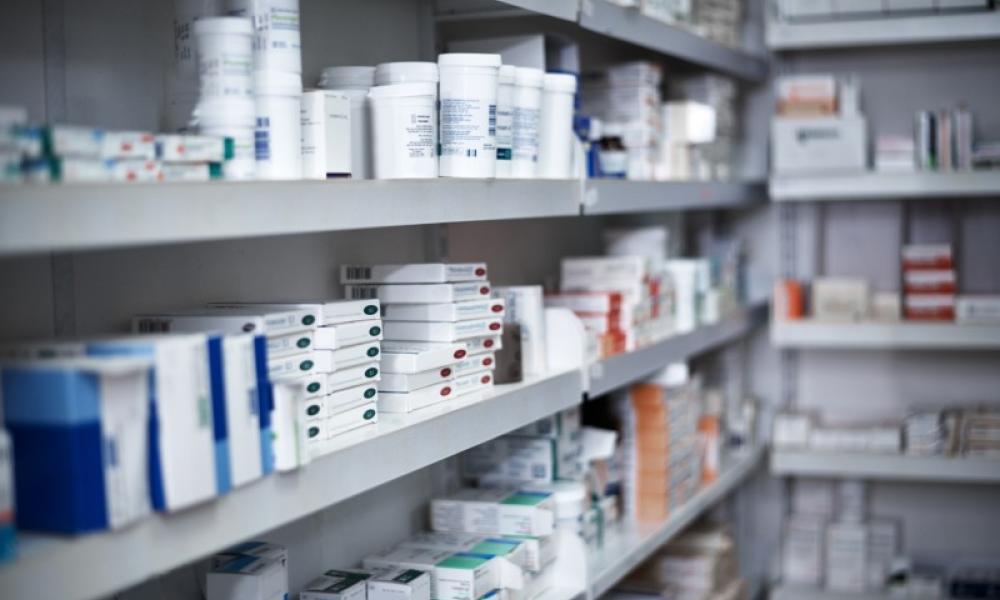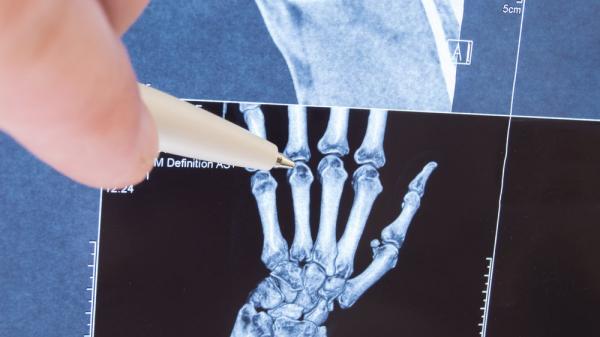
What is tocilizumab?
Tocilizumab (brand name Actemra®) is a biological disease modifying antirheumatic drug (biological DMARD or bDMARD). bDMARDs block natural substances called cytokines, which are found in excessive amounts in the blood and joints of people with rheumatoid arthritis.
The increased levels of cytokines cause inflammation, which results in symptoms of pain, joint swelling and stiffness, and can lead to joint damage. By blocking the cytokine called interleukin-6 (IL-6) tocilizumab reduces inflammation, lessens the symptoms and helps stop further joint damage.
Tocilizumab is also used to treat juvenile idiopathic arthritis.
Giant cell arteritis is an autoimmune condition where certain arteries in the scalp, neck and arms become inflamed and block blood flow. Some cases of giant cell arteritis are treated with tocilizumab.
What benefit can you expect from your treatment?
You may notice some relief of joint swelling, pain and stiffness within the first 8 weeks of treatment.
Stopping tocilizumab
If tocilizumab treatment is stopped for more than a few weeks there is a risk that your condition will get worse again. Continue with your treatment unless advised by your rheumatologist or unless side effects develop (see Side effects).
If you stop tocilizumab for any reason you must contact your rheumatologist. Failure to do so may mean that your continued treatment may no longer be subsidised.
How will you be checked while on tocilizumab?
- Medicines like tocilizumab are very expensive and highly funded by Medicare. Certain conditions must be met to receive it.
- Tocilizumab will only be given if your disease is active and if standard treatments have not worked.
- It will only be continued if it helps your condition. This must be checked between 12 and 16 weeks after the start of treatment.
- Blood tests are needed during your treatment to watch for side effects and decide if the treatment is working.
- How often you have blood tests will depend on what other medicines you are taking and what other illnesses you have. Your rheumatologist will advise on this.
How is tocilizumab given?
Tocilizumab can be given as a drip (infusion) into the vein. The infusion normally takes one hour and is followed by a period of observation for at least one hour to make sure you don’t have any side effects. Doses are usually given every 4 weeks. It can also be given once a week as an injection given into the skin of the abdomen or thigh.
What is the dosage?
The infusion dose is based on body weight so each person's dose may be different. When given under the skin the dose is 162mg.
Can other arthritis medicines be taken with tocilizumab?
Tocilizumab may be safely used with other arthritis medicines including:
- other DMARDs such as methotrexate
- steroid medicines such as prednisolone or cortisone injections into the joint
- anti-inflammatory medicines (NSAIDs) such as naproxen (Naprosyn) or ibuprofen (Brufen, Nurofen)
- simple pain medicines such as paracetamol.
Are there any side effects?
You might experience side effects with your treatment. Contact your doctor if you have any concerns about possible side effects. Many side effects disappear when tocilizumab treatment is stopped.
Most common possible side effects
- Side effects can occur during the infusion itself. These may include fever or chills, itch, dizziness, headache, chest pain, shortness of breath or changes in blood pressure. These effects are more likely to occur during the first or second infusion and can usually be reduced by giving steroids, antihistamines and paracetamol before the treatment.
- Other common possible side effects include:
- headache or cough
- stomach or bowel discomfort
- skin effects such as rash, dermatitis and itching may occur in up to 10% of patients. These are usually mild, and do not usually require stopping treatment.
- Liver enzymes: Tocilizumab can cause liver tests to rise in up to 40% of patients. The tests returned to normal in most patients while they were still being treated with the medicine. This does not cause symptoms unless severe so regular blood tests are important.
- Cholesterol level: Tocilizumab may cause a reversible increase in cholesterol and triglyceride levels. While high cholesterol and triglyceride levels are risk factors for heart attack and stroke, the long-term significance of this in patients with rheumatoid arthritis is uncertain.
- As tocilizumab affects the immune system mild infections, particularly of the upper respiratory tract (e.g. colds, sinusitis) may occur more frequently than usual. Treatment may need to be temporarily stopped so contact your doctor for advice.
Less common or rare possible side effects
- Blood counts: Tocilizumab can cause a drop in the number of white blood cells, which are needed to fight infection. This is monitored carefully with regular blood tests.
- Serious infections such as tuberculosis (TB) are seen rarely and screening for TB is needed before treatment begins (see below).
- Perforation of the stomach or gut (a hole in the bowel wall) has been reported rarely in patients treated with tocilizumab.
What precautions are necessary?
Infections
- If you have a serious active infection of any kind treatment with tocilizumab will not be given until the infection is treated successfully.
- X-Ray’s and other tests may be required to exclude some chronic infections before your first bDMARD.
Precautions with other diseases
- People with diverticular disease may not be treated with tocilizumab as the medicine may increase risk of stomach perforations.
Use with other medicines
- Tocilizumab can interact with other medicines. You should tell all your doctors about all medicines you are taking or plan to take. This includes over the counter or herbal/naturopathic medicines.
Vaccines
If you are prescribed tocilizumab you should not be immunised with ‘live’ vaccines such as:
- MMR (measles, mumps and rubella), Varicella vaccines (Chicken pox/Shingles), OPV (oral polio virus), BCG (Bacillus Calmette Guerin), Japanese Encephalitis or Yellow Fever. Talk with your rheumatologist before receiving any vaccines
- Pneumococcal vaccines and the yearly seasonal flu vaccinations are encouraged.
For more information on vaccination including the COVID-19 vaccination click here
Surgery
If you require surgery for any reason, you should discuss this with your rheumatologist as some people need to stop taking tocilizumab before surgery.
Alcohol
You may drink alcohol while taking tocilizumab. However, if you are also taking methotrexate, you should be cautious about how much alcohol you drink.
Cancer
People with rheumatoid arthritis are at increased risk of lymphoma and some other cancers. Medicines that change your immune system like tocilizumab may increase this risk. Skin cancers have been reported in people taking tocilizumab and yearly skin checks are recommended.
Pregnancy, breastfeeding and fertility
- Limited information regarding the possible effects of tocilizumab on the unborn baby is available. If you plan to become pregnant it is important to discuss this with your rheumatologist.
- There is limited information on breastfeeding while using tocilizumab. Please discuss this with your rheumatologist.
More detailed information is available here.
How to store tocilizumab
- Store tocilizumab in a cool, dry place, away from direct heat and light.
- Once removed from the refrigerator, tocilizumab that is given under the skin must be administered within 8 hours and should not be kept above 30°C.
- Keep all medicines out of reach of children.
Disposal
- After injecting tocilizumab, the used syringes should be placed in a puncture resistant container, like a sharps container. Dispose of your sharps container according to your state or local regulations. If unsure how to dispose of your sharps container, ask your pharmacist.
- If your doctor tells you to stop using tocilizumab, or the expiry date has passed, ask your pharmacist what to do with the leftover medicine.
Important things to remember
- You must see your rheumatologist regularly to make sure the treatment is working and check for possible side effects.
- You should have regular blood tests as suggested by your rheumatologist.
- It is important to tell your rheumatologist if you have a new serious illness such as a serious infection, cancer, heart failure etc.
- If you are worried about any side effects, you should contact your rheumatologist as soon as possible.
- If you stop tocilizumab for any reason, you must contact your rheumatologist. Failure to do so may mean that your treatment may no longer be funded.
- If you plan to become pregnant, you must discuss the timing with your rheumatologist.











